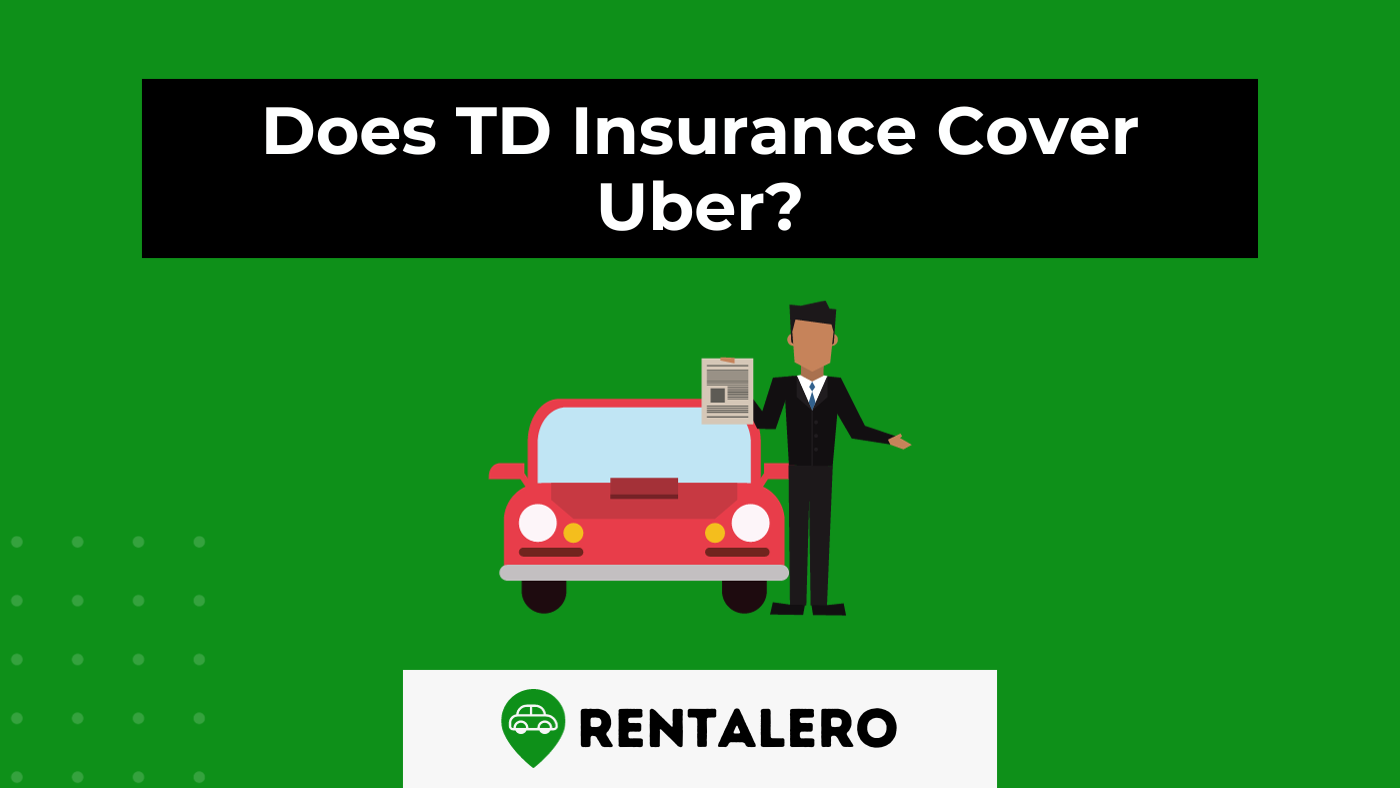Thinking about driving for Uber but stuck on the insurance question? You’re not alone.
The uncertainty about whether TD Insurance cover Uber can be a significant hurdle for prospective and current drivers alike.
In this article, we’re diving into TD Insurance’s policies related to Uber and Lyft. We’ll explore topics like:
- Does TD Insurance cover Uber?
- What other vehicles do they cover?
- What are your options if you’re an Uber or UberEATS driver in Canada?
By the end of this read, you’ll know exactly where TD Insurance stands on ridesharing and have the know-how to make the best insurance decisions for your rideshare journey.
Let’s get started!
Advertising links are marked with *. We receive a small commission on sales, nothing changes for you.
Key Takeaway
- TD Insurance does not provide coverage for ridesharing services like Uber or Lyft, so drivers must look for alternative insurers with rideshare endorsements.
- While TD doesn’t cover ridesharing, it does insure other unique vehicles, such as lawn tractors and golf carts.
- Passengers typically don’t need separate rideshare insurance, as coverage might be included in personal insurance or the service’s policy.
- For Uber and Uber Eats drivers in Canada, comparing quotes, understanding coverage details, and considering additional options are essential in finding the right policy.
- Uber offers its drivers some insurance, but understanding the limitations and potential gaps is key, as it may not cover all the drivers’ needs.
TD Insurance’s Stance On Ridesharing
TD Insurance currently does not provide coverage for vehicles used in ridesharing services like Uber or Lyft.
The distinction between personal and commercial vehicle use creates complexities in insurance terms. Ridesharing occupies a space between these two categories, presenting a challenge for insurance providers.
Types Of Vehicles TD Insurance Covers
While ridesharing remains outside TD Insurance’s coverage, they also insure other unique vehicles.
Specifically, they offer insurance for lawn tractors and golf carts.
These vehicles, though non-traditional, align more closely with TD Insurance’s policy structures.
In the context of ridesharing, knowing what an insurer does and doesn’t cover is paramount.
It’s all about informed decisions. TD Insurance’s stance indicates that prospective rideshare drivers should look elsewhere for coverage tailored to their needs.
If you’re dedicated to the idea of ridesharing, there are insurance options out there that cater to this niche.
Passengers And Rideshare Insurance
As a passenger, you don’t need to buy separate rideshare insurance. If something goes wrong during the ride, your insurance or the owner’s insurance policy might cover you.
This relief is for many who often use ridesharing services, as it simplifies the process and eliminates extra expenses.
Policy Coverage From The Passenger’s Own Policy Or Owner’s Policy
Now, let’s dive deeper into the details.
Your Insurance Policy
Depending on the terms, your insurance might cover incidents while you are a ridesharing vehicle passenger. It’s worth checking the details of your policy to be sure.
Owner’s Policy
On the other hand, the rideshare service itself often carries insurance that protects passengers.
Uber’s policy, for example, includes driver liability and bodily injury coverage for drivers and riders.
Car-Sharing Services
Regarding car-sharing services, insurance is typically included in the membership. However, this insurance might require the driver to meet certain requirements.
Knowing your rights and the protections in place can save a lot of stress if something unexpected happens during a ride.
Options For Uber And Uber Eats Drivers In Canada
Since TD Insurance doesn’t cover ridesharing, finding the right insurer is essential.
Research Options
Look for insurance providers who offer a rideshare endorsement. This special addition to a policy covers ridesharing activities.
Compare Quotes
Talk to different insurers to compare prices. Make sure to provide all relevant information about your ridesharing plans.
Ask About Coverage
Be clear about what’s covered. This includes your passengers, your vehicle, and any goods you transport.
Consider Additional Coverage
Think about other options, like medical or collision insurance. They could be vital if something goes wrong.
Finding the right coverage is about asking the right questions and comparing options. It’s worth the effort to find the policy that suits you best.
Uber’s Insurance Policies
Uber offers some insurance, but it may not be enough. Here’s what they provide:
Driver Liability
Uber includes liability coverage while you’re on a trip. If you cause an accident, this helps pay for the damages.
Bodily Injury
Uber’s insurance may cover medical bills if you or a passenger get hurt.
Limitations
Uber’s coverage might have gaps. For example, it may not cover you between rides or if you’re at fault in a major accident.
Uber’s insurance is a good starting point, but it might not cover all your needs.
Conclusion
If you’re considering driving for Uber or Uber Eats in Canada, it’s vital to recognize that TD Insurance doesn’t cover ridesharing.
You’ll need to explore other insurance options that offer specific endorsements for your ridesharing activities.
Passengers are generally covered under Uber’s policy or your own, eliminating the need for additional coverage.
The key here is research and understanding. Know your rights, compare various quotes, ask detailed questions, and find the policy that aligns with your needs.
Making informed insurance decisions is crucial for drivers and passengers in the ridesharing economy.
Frequently Asked Questions
Does TD Insurance cover ridesharing services like Uber?
TD Insurance does not provide coverage for vehicles used in ridesharing services such as Uber or Lyft. Drivers interested in ridesharing need to seek coverage from other insurers that offer rideshare endorsements.
What other vehicles is TD Insurance going to cover?
While TD Insurance doesn’t cover ridesharing vehicles, they cover unique vehicles like lawn tractors and golf carts. These align more closely with their policy structures.
Do passengers need separate rideshare insurance when using Uber?
Passengers generally don’t need to buy separate rideshare insurance. They may be covered under their insurance or the owner’s policy, such as Uber’s driver liability and bodily injury coverage.
What should Canadian Uber and UberEATS drivers consider when looking for insurance?
Drivers should research insurance providers with rideshare endorsements, compare quotes, be clear about the coverage (including passengers, vehicles, and goods), and consider additional medical or collision insurance options.
Is Uber’s insurance policy enough for drivers?
While Uber provides some coverage, including driver liability and bodily injury, there might be gaps, such as not covering the driver between rides or a major at-fault accident. It is a good starting point but may not fulfill all the driver’s needs, so additional insurance might be necessary.

Nzoputa has been writing for Rentalero since day one and is one of our most experienced members when it comes to the rental industry. For her, nothing beats Uber!
Advertising links are marked with *. We receive a small commission on sales, nothing changes for you.

